On July 17, specialist doctor Le Thi Thuy Hang, University of Medicine and Pharmacy Hospital, Ho Chi Minh City - Facility 3 According to the medical history, the patient said that he had used a balm bought at the night market to rub on his temples to treat his headache. About 30 minutes later, a burning sensation began and the skin became red. After being diagnosed with acute irritant contact dermatitis, the patient was treated with topical anti-allergy and anti-inflammatory drugs. After 5 days, the symptoms improved significantly.
Similarly, there are cases where adults put oil in the nose of a child to treat nasal congestion, leading to convulsions, cyanosis, and requiring emergency resuscitation. The cause is because the oil contains high concentrations of nerve stimulants such as camphor and menthol.
As Thanh Nien reported, in early July, Ho Chi Minh City Police prosecuted suspects involved in a ring that produced 70,000 bottles of fake famous brand medicated oil, worth more than 6 billion VND.
"Unlike other cosmetic or consumer products, essential oils can directly affect the body, through the skin, respiratory tract and even the digestive tract if accidentally swallowed. Fake essential oils are often made from cheap solvents, industrial essential oils, chemicals of unknown origin, and uncontrolled concentrations or toxicity. These ingredients can cause many serious consequences for users," Dr. Hang shared.
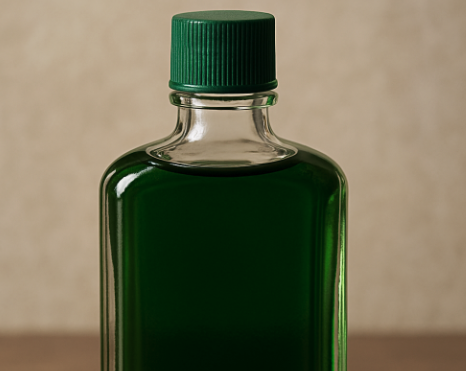
Essential oil is a product that can directly affect the body, through the skin and respiratory tract.
ILLUSTRATION: AI
The harmful effects of using fake essential oils
Impure chemicals can cause redness, itching, blisters, and burning of the skin, especially in people with sensitive skin. Some people will develop allergic dermatitis after applying fake essential oils to the neck, temples, back, etc. If the skin is damaged by irritation or scratching, bacteria can enter and cause skin infections.
In addition, anaphylaxis can occur - manifested by facial swelling, hives all over the body, difficulty breathing, low blood pressure, life-threatening if not treated promptly.
Inhalation can cause irritation of the nasal and throat mucosa: Fake essential oils can cause sneezing, coughing, sore throat, and stuffy nose.
Increased risk of asthma attacks: For people with a history of asthma or chronic obstructive pulmonary disease (COPD), inhaling strong-smelling oil vapors with high chemical concentrations can cause bronchospasm.
Neurotoxicity: The chemical smell from fake essential oils can cause headaches, nausea, dizziness, and loss of consciousness if exposed for a long time.
Signs of adverse reactions due to fake essential oils
Being alert to the symptoms after using essential oils helps users promptly detect and handle them early. Local reactions such as a burning sensation that does not subside, redness, blisters, severe itching, and widespread rash. In addition, there will be coughing, wheezing, difficulty breathing, chest pain, dizziness, nausea, vomiting, visual disturbances, confusion, agitation, and changes in consciousness (in severe cases).
As soon as there are unusual signs, users should stop using the product and go to a medical facility for timely treatment.
How to handle suspected reactions due to poor quality essential oils
Stop contact immediately . Wash exposed skin with clean water and mild soap.
Active treatment at a medical facility depending on the condition: Monitor symptoms such as pulse, blood pressure, breathing, and consciousness. Use medication as prescribed by the doctor, if any. Infusion, anti-emetic, and close monitoring for symptoms of poisoning.
Retain suspected products for testing and report to authorities if necessary.
How to identify real and fake essential oils?
Genuine essential oils have clear printing, barcodes for traceability, and anti-counterfeit stamps. Counterfeit products are often printed faintly, have pale colors, and lack information about the manufacturer. Genuine essential oils have a pleasant essential oil scent, not too strong. Fake essential oils have a strong, chemical, pungent, and unpleasant smell. Genuine essential oils have reasonable prices, not too different between points of sale. Fake oils are often unusually cheaper.
"Fake essential oils are not simply low-quality products, but a health hazard if users are not vigilant. Every consumer needs to raise awareness, be careful in choosing, and equip themselves with basic knowledge to protect themselves. In particular, real essential oils should not be overused; applying them wherever they come into contact and applying too much can also cause skin and respiratory irritation," Dr. Hang warned.
Source: https://thanhnien.vn/dung-dau-gio-gia-gay-hai-suc-khoe-the-nao-cach-phan-biet-voi-dau-gio-that-185250716212038254.htm



![[Photo] National Assembly Chairman Tran Thanh Man receives First Vice Chairman of the Federation Council of the Federal Assembly of the Russian Federation](/_next/image?url=https%3A%2F%2Fvphoto.vietnam.vn%2Fthumb%2F1200x675%2Fvietnam%2Fresource%2FIMAGE%2F2025%2F12%2F02%2F1764648408509_ndo_br_bnd-8452-jpg.webp&w=3840&q=75)




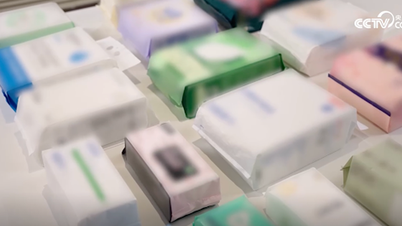





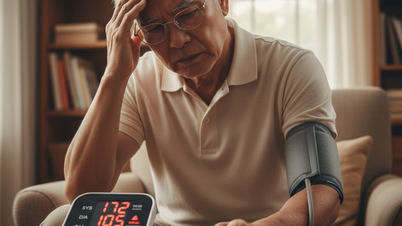





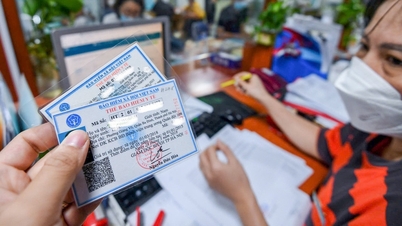











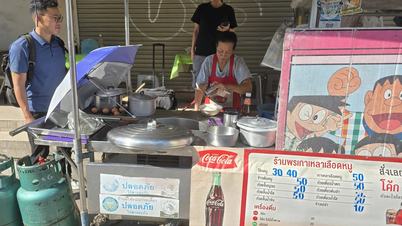













































![[Photo] General Secretary To Lam and his wife attend the 50th Anniversary of Laos National Day](https://vphoto.vietnam.vn/thumb/402x226/vietnam/resource/IMAGE/2025/12/02/1764644139308_1.jpeg)








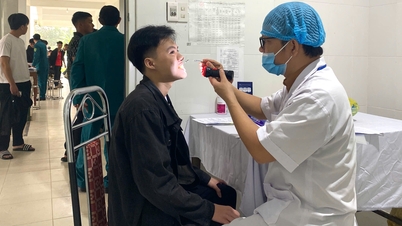



















Comment (0)